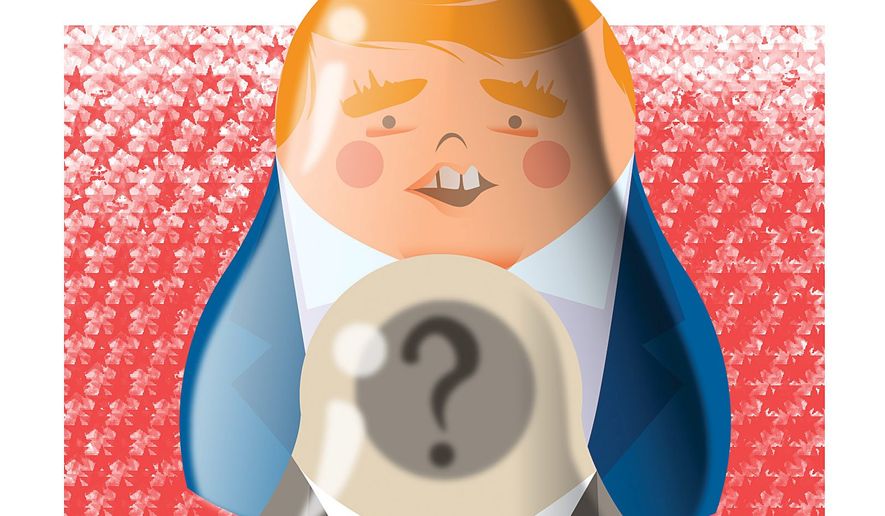OPINION:
While the vice presidency has been notoriously derided as inconsequential, Donald Trump’s choice is anything but. Beyond being his biggest political decision since winning the nomination, it is one of the few political decisions this first-time candidate has ever made. It is also a major opportunity to capitalize on his advantage over Hillary Clinton with the substantial number of uncommitted voters who will decide November’s outcome.
The vice presidency is America’s most frequently and famously denigrated office. John Nance Garner said it was “not worth a bucket of warm spit.” Although other vice presidents have not been so candid, their opinions of the office have probably not strayed far from Garner’s.
It is a job of supreme potential. America’s first vice president, John Adams captured this in part, saying: “I am Vice President. In this I am nothing, but I may be everything.” Many vice presidents have succeeded to the presidency — often becoming successful presidents. They have also frequently become their party’s presidential nominee in a later election.
This potential extends beyond the vice president and on to presidential candidates who have sought to use their picks to enhance their own chances of success.
It has often been used to “balance the ticket.” Historically, this has meant geographic balance. More recently it has meant ideological or demographic balance. It has also been used as a long-shot attempt to breathe energy into a faltering campaign.
Yet for all its potential, the vice presidency is more often than not unrealized by person and party alike. Most vice presidents do not become president — either while in office or later. And as a pick the impact is usually small on a race’s outcome — and if it does have one, it is more likely to be negative.
The reason for the vice presidency’s unrealized potential is simple. In presidential contests, usually Americans are deciding between politicians they know rather well. The focus is on the top of the ticket, not the bottom, and there is ample political evidence on which to judge the top.
Donald Trump is now what makes this election so different and why his vice presidential pick has so much more potential than usual.
Unlike any major party nominee since Eisenhower in 1952, America does not have a long history of political decisions to sift through when it comes to Mr. Trump. Basically other than his announcement to enter this race just over a year ago, this is largely it. With his current supporters, this lack of a political resume is an asset. However with the large group of still unaligned voters, this is an opportunity — a big one.
The latest Rasmussen poll (taken of 1,000 likely voters on July 5, margin of error plus or minus 3 percent) shows just how big this potential could be. The poll showed Mr. Trump leading Mrs. Clinton 42 percent to 40 percent. However, the important point going forward is the 18 percent (13 percent favoring another candidate and 5 percent undecided) who are not supporting either now — but who possibly could still be swayed. Hence, Mr. Trump’s opportunity with his vice presidential pick.
Those who are unaligned in this race are also likely to be quite “decided” about the two major candidates: apprehensive, if not repelled. On one hand Mr. Trump’s statements have pushed them from him. On the other, Mrs. Clinton’s actions have pushed them from her. While this may seem “a push” in gambling parlance, where both candidates somehow split the unaligned between them without determining the outcome, Mr. Trump’s potential is greater than Mrs. Clinton’s here.
Actions still speak louder than words. And Mr. Trump needs them to — desperately — in his quest for the unaligned who will decide this election.
With the right pick, Mr. Trump can demonstrate in action how he would govern. Nothing could go further to ameliorate his self-inflicted verbal wounds than a solid decision here. It is about more than choosing a running mate; it is about sending a message he has been unable to speak to a large number of America’s electorate.
And because Mr. Trump is a political novice, who will need competent political experience around him — and a competent CEO, who is familiar and comfortable with delegating — the right pick will have a disproportionat impact on a Trump administration. Does anyone imagine that Mrs. Clinton’s vice president would have a similar opportunity in her administration?
Mr. Trump also has the advantage to change opinion about him precisely because he is so politically unknown. With such a small number of actions on which to judge, each new one has a far greater chance to change the overall impression. Contrastingly, Mrs. Clinton has a quarter of a century of actions by which she is being judged — and which her low approval ratings indicate isunfavorably — and any one can do little to change the unaligned’s summative opinion of her.
Not with one pick can Mr. Trump undo the damage he has done himself with America’s unaligned — we are still talking about the vice presidency here and it is the entree, not the side dish that determines the diner’s order. However he could help himself a great deal — and a great deal more than can Mrs. Clinton. For an office embodying potential, never has it done so more than it now does for Mr. Trump.
• J.T. Young served in the Treasury Department and the Office of Management and Budget, and as a congressional staff member.




Please read our comment policy before commenting.